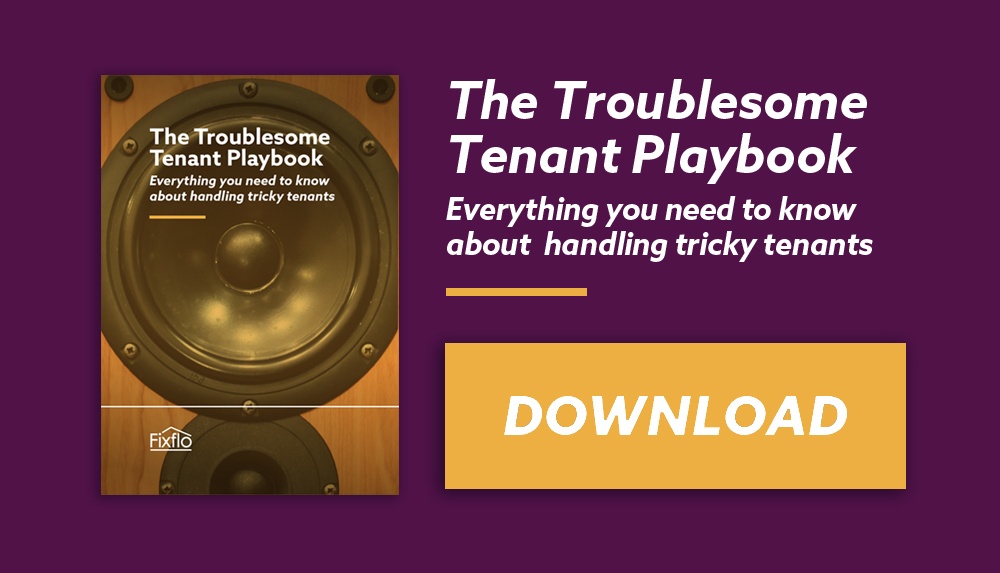Top Tips for Handling Bad Tenants
In the majority of cases, tenants are great. They are usually the law-abiding guardians of the landlord's property, which is often the biggest investment the landlord would make in their lifetime. However, there is always those rare, but undeniably tricky tenants. From the tenants who leave the garden weeds grow into an urban jungle, to those who always pay their rent late or even short pay, a small number of them do exist. While some types of bad tenant behaviour require legal intervention that we would never seek to make light of - illegal, anti-social or dangerous behaviour – other tenant behaviour may simply require some skillful handling.
Here are our top tips for minimising the impact of bad tenants across five of the most common pain points:
Bad tenant behaviour #1: Consistently not paying rent
The first thing to remember is you’re not alone. The English Housing Survey estimates around 9% of private tenants and 25% of social tenants are in rental arrears. This doesn’t mean it’s acceptable. Contact your tenant as soon as possible and see if you can come to an agreement to satisfy both the landlord and tenant. If your tenant has a guarantor (often the case in student housing) you can contact them to recover the unpaid rent in the tenant’s stead. If the tenant is evasive and not open to working out an arrangement to cover missed rent, consider taking legal advice and starting the eviction process. You can’t win ‘em all.
Bad tenant behaviour #2: Not giving access
The law is on their side on this one – you do need the tenant’s permission to enter the property, even if urgent work needs doing. There are any number of reasons they could refuse you entry, the key thing here is to remember this is their home, and everyone is entitled to privacy.
If the tenant denies you access, you should explain to the tenant why you need to gain entry and provide as much notice as you can for an alternate date/time. This can help the tenant make diary arrangements if they are the type who want to be present when you or the contractor access their home. Better communication and more consideration will give you better chances of gaining entry. If they still say no, document every email, telephone and verbal conversation you had to prove you did your best to enter in a reasonable and measured way. If there's severe disrepair or even risks to personal health & safety, you should consider seeking a court order.
Bad tenant behaviour #3: Disruptive behaviour
Who doesn't like a good party? The key is time and place. No one deserves to suffer from glaring music from the house next door in the middle of the night. Nor should anyone have to endure long hours of thunderous footsteps from the flat above (not everyone has carpeted floors, do they?). While we're entitled to let our hair down once in a while, receiving too many complaints from your tenant’s neighbours means it’s time to step in.
If a quiet word about your concerns doesn’t have an impact, draw their attention to the anti-social behaviour clause in the tenancy contract (if you don’t have one, consider adding it to their renewal contract in the future). Most tenants will adjust their behavior once they’ve been called out on it. But for those that don’t, there are laws in place to cover anti-social behavior. Approach your local council or environmental health officer to take action or in extreme cases, notify the police.
Bad tenant behaviour #4: Damage to your property
Although some issues will only come to light at the end of the tenancy, conducting regular property inspections is the best way to nip damage in the bud. Damage to property should definitely be covered in your tenancy agreement so the first step is to ask tenants to put the damage right. If they refuse, they are subject to repairs charges and deposit deduction when they check out of the property (even now that the new Tenant Fees Act has come into effect). It’s worth keeping the receipts for all furniture and electronics in the property so you can prove how much things are worth and set charges accordingly.
Bad tenant behaviour #5: Build up of maintenance issues
Giving your tenants an easy way to report issues is the best way to minimise the damage caused by overdue reporting of repairs and maintenance issues. Fixflo’s online portal allows tenants to report repairs 24/7 and even offers guidance on tenant responsibilities, offering tips on DIY fixes to issues such as mildew and mould.
As with all of the concerns outlined above, being reasonable, approachable and responsive is the best way to minimise bad tenant behaviour. And if that fails, seek legal advice. Your property is your most valuable asset – be sure to protect it.
For more information and ideas about to tackle bad tenant issues, download our FREE e-book ‘The Bad Tenant Playbook’.
BLOG DISCLAIMER
This article is intended for information purposes only and does not constitute legal advice. If you have any questions related to issues in this article, we strongly advise contacting a legal professional.
These blog posts are the work of Fixflo and are licensed under a Creative Commons Attribution-ShareAlike 3.0 Unported License. In summary, you are welcome to re-publish any of these blog posts but are asked to attribute Fixflo with an appropriate link to www.fixflo.com. Access to this blog is allowed only subject to the acceptance of these terms.

